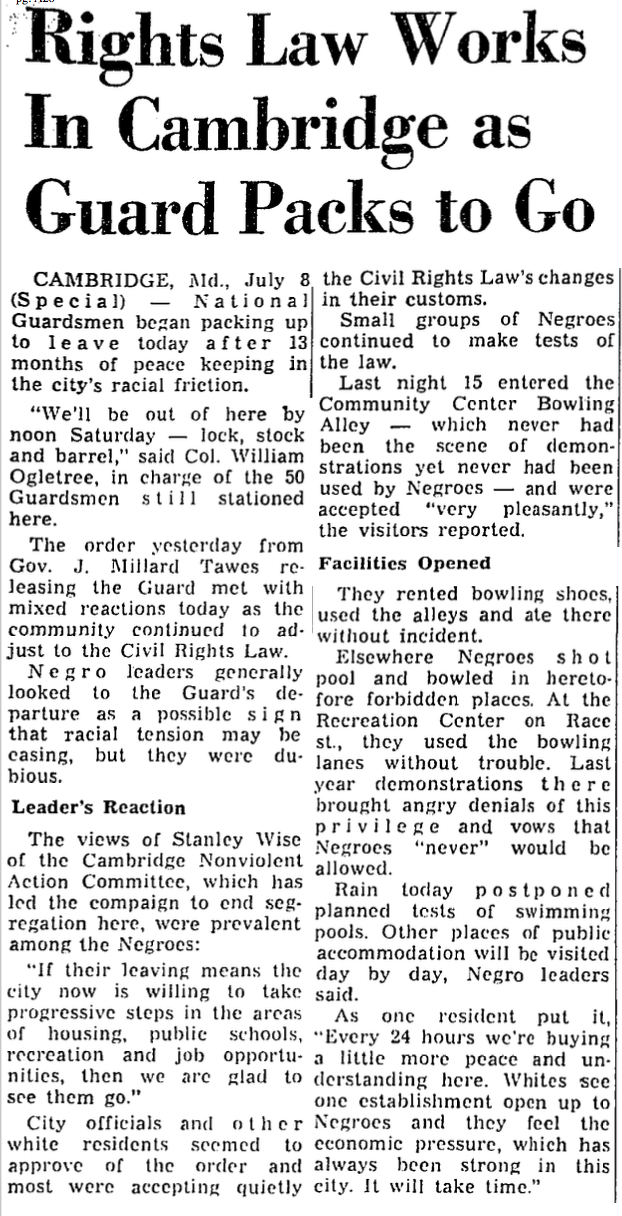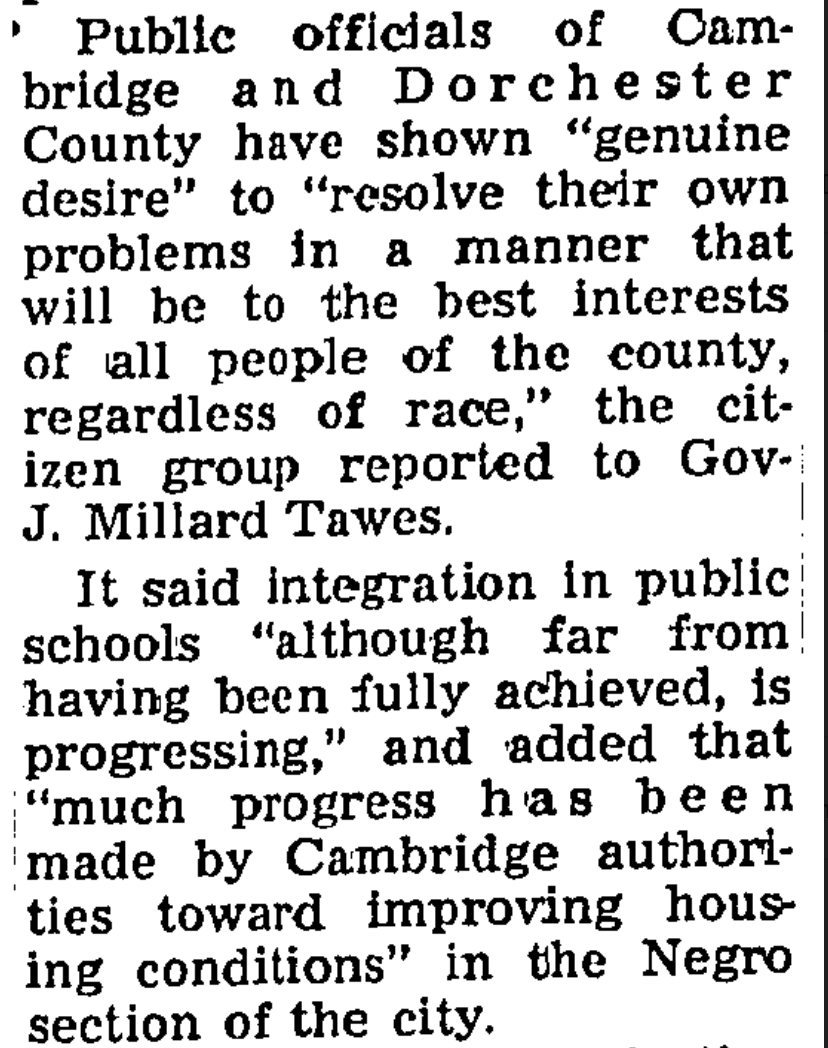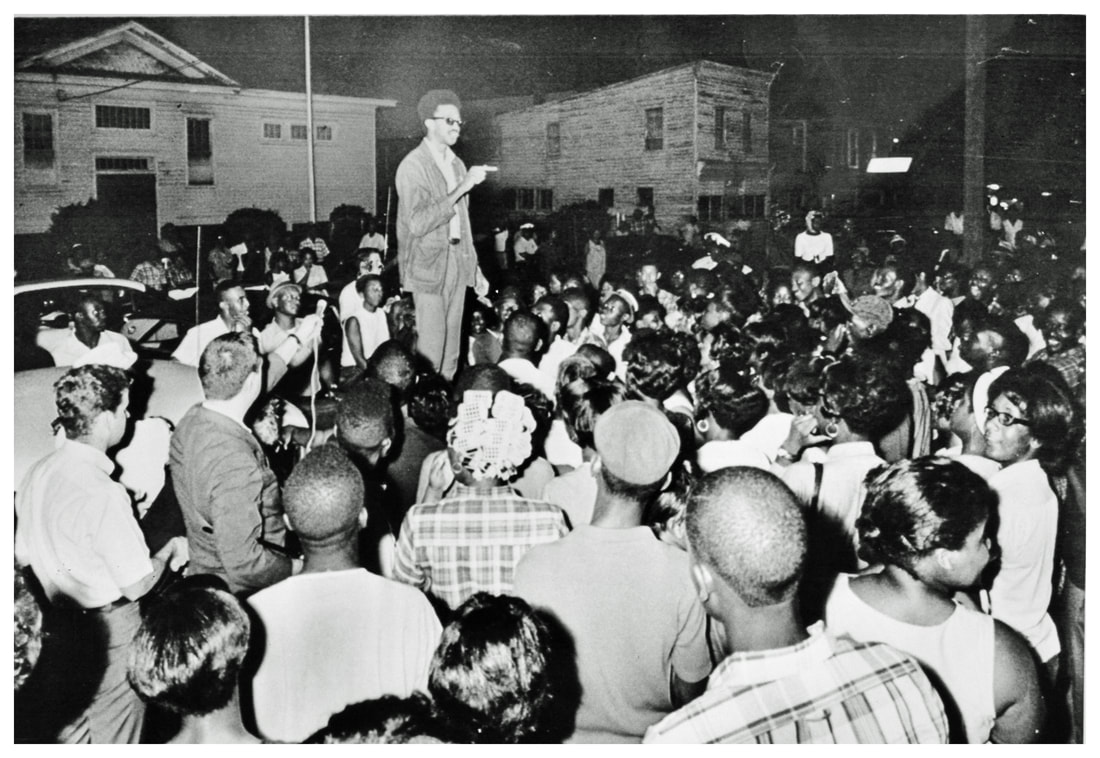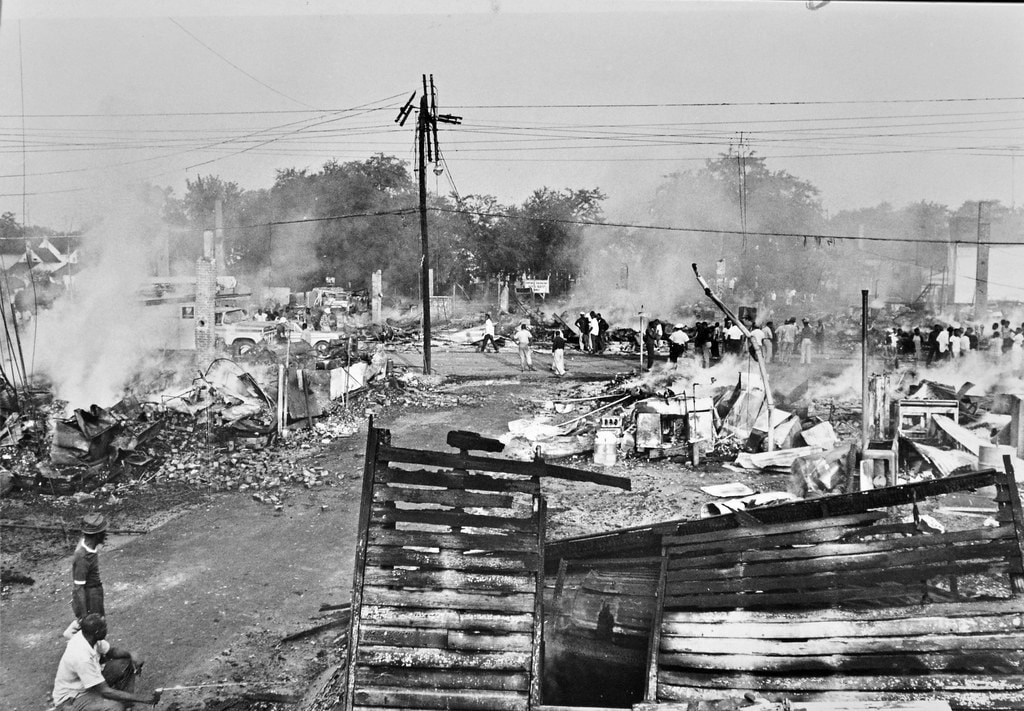
The Washington Post, 1964
CNAC and Richardson continued to have a presence in Cambridge because of the conflict between middle class citizens and working class black citizens around the referendum. Progress was made in Cambridge following the passage of the treaty, as the schools, public transportation and hospital were desegregated. The passage of the 1964 Civil Rights Act federally pushed desegregation in Cambridge further and led to the removal of the National Guard.

The Washington Post, 1964

Washington Post, 1964

H. Rap Brown speaking to Cambridge Crowd, Washington Area Spark, 1967
Richardson retired from her leadership position in CNAC in 1964 and moved to New York. However, in 1967 tensions rose again. The chairman of SNCC, H. Rap Brown was invited to speak in Cambridge. Brown was a controversial civil rights leader, often challenging non-violent methodology. During his speech in Cambridge, Brown directly called out Maryland Governor Spiro Agnew for his inaction on integration.
"The long simmering anger at racism and economic injustice of alienated black youth in the ghettos always errupts into violent and destructive urban insurrections. In every case these "riots" were triggered by police brutality and misconduct most usually the killing or brutalizing of an unarmed black man."
-H. Rap Brown's autobiography, Die N*gger Die, 1967
"If this town don't come around, this town should be burned down. "
-H. Rap Brown, Washinton Area Spark, 1967
The 500 supporters in the crowd were reminded of the progress that had not yet been made and again they rose up. The national guard was called in again and the damage was immense. The uprising was catastrophic for Cambridge’s black community, but so was the society they were living in. Many felt it was a necessary action.

Cambridge post riot, Washington Area Spark, 1967
"I hope they pick him [Brown] up soon, put him away and throw away the key."
-Spiro Agnew, 1967